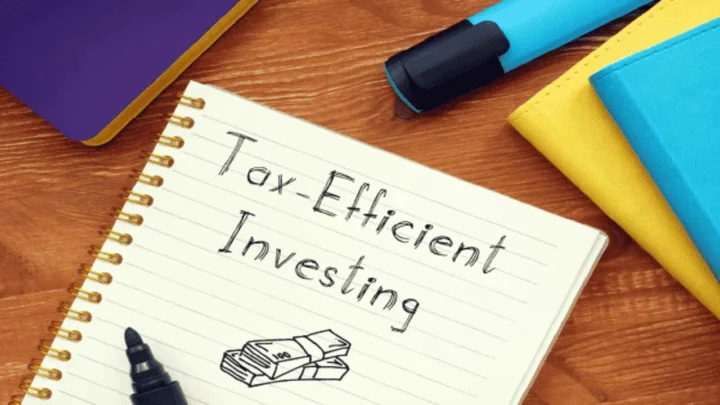Navigating the Challenges of Financial Planning in Your 30s

Your thirties can be one of the most pivotal decades financially. You may be settling into a career, getting married, buying a home, starting a family, and building wealth. But it can also be a stressful decade loaded with pitfalls if you aren’t strategic. Making intentional money decisions now sets the foundation for achieving future goals around lifestyle, retirement, college savings, and more.
Paying Down Debt

By your thirties, debt has likely piled up from various sources such as student loans, auto loans, credit card balances, medical bills, personal loans, etc. Make paying these off a priority to avoid sinking further through growing interest costs. Start by tackling any high-interest rate debts first, specifically credit cards or personal loans over 10%. Simultaneously, keep making minimum payments on low interest debts like federal student loans or mortgages. Explore options like debt consolidation loans or balance transfer credit cards to speed up payoff timelines.
Building Savings & Investment Portfolios
While debt payoff is crucial in your thirties, so is proactively building wealth. Retirement may seem eons away, but the power of compound growth makes now an ideal time to start saving and investing. Begin by contributing enough to any 401k plan to receive full employer matching funds. But don’t stop there. Set a goal to steadily increase your contributions to max out your annual 401k contributions at $20,500. Additionally, open a Roth IRA for supplemental tax-advantaged retirement savings each year. The actions you take now could mean an extra few hundred thousand dollars or more in retirement assets down the road.
Purchasing a Home

For many Americans, buying a first home happens sometime in the thirties decade. This major milestone comes with excitement and challenges. The experts at Mortgage Maestro in Denver say you should do thorough homework before looking for a Colorado home mortgage. Start by checking credit reports for errors, paying down other consumer debts, and saving up for a solid down payment, ideally 20%. Get pre-approved from multiple mortgage lenders and compare rates. Account for not just the purchase price, but closing costs, property taxes, insurance, PMI, and more.
Evaluating Lifestyle Inflation
Your thirties tend to involve more lifestyle-related costs as you settle into adulthood. Creating and sticking to a detailed budget allows you enjoy this exciting phase of life without sabotaging other financial goals. Set clear priorities with your spouse on saving ratios versus spending and figure out fixed limits in each category. Live well below your means wherever possible. Develop smart hacks like buying used, reliable vehicles in cash, looking for free or affordable local attractions and activities, cooking at home more, taking staycations, etc.
Mitigating New Risks
Your thirties can also introduce new risks to evaluate and manage such as health crises, job loss or instability, lawsuits, injuries, premature death etc. Ensure you have adequate health insurance coverage including disability protection if offered through work. Also consider getting life insurance if anyone depends on your income.
Building an Emergency Fund for Financial Security
Establishing an emergency fund is a critical component of financial planning in your 30s. This fund acts as a safety net to cover unexpected expenses, such as medical emergencies, car repairs, or job loss. Financial experts recommend setting aside at least three to six months’ worth of living expenses in a readily accessible account. Having this cushion not only provides peace of mind but also prevents you from resorting to high-interest debt when faced with unforeseen financial challenges. It serves as a foundation for overall financial stability, ensuring that you can weather unexpected storms without derailing your long-term financial goals.
Tax-Efficient Investing Strategies

Incorporating tax-efficient investing strategies into your financial plan can help you optimize your returns and minimize your tax liabilities. One key strategy is to take advantage of tax-advantaged accounts such as Health Savings Accounts (HSAs) or 529 College Savings Plans, which offer tax benefits for specific financial goals. Additionally, consider the tax implications of your investment choices. For example, investing in tax-efficient funds or holding investments for the long term can reduce your capital gains tax liability. It’s essential to work with a tax professional or financial advisor to tailor your investment strategy to your unique tax situation, ensuring that you maximize your after-tax returns.
Beyond 401k and Roth IRA
While contributing to a 401k and Roth IRA is a great start to retirement planning, diversifying your retirement savings is equally important. Explore other retirement account options, such as traditional IRAs or self-employed retirement plans, depending on your employment status and income sources. Diversifying retirement accounts can provide tax flexibility and allow you to optimize your retirement income based on tax brackets in retirement. Additionally, consider diversifying your investments within these accounts to spread risk and potentially achieve higher returns.
Estate Planning for Long-Term Financial Security

Estate planning is not just for the wealthy; it is a crucial aspect of ensuring long-term financial security for your loved ones. Start by creating a comprehensive will that outlines your wishes for asset distribution and guardianship of dependents in case of your untimely passing. Consider establishing trusts to manage and protect assets, especially if you have specific requirements or beneficiaries with special needs. Review beneficiary designations on financial accounts and insurance policies to ensure they align with your current intentions. Estate planning also involves considering strategies to minimize estate taxes, such as gifting or setting up charitable trusts.
Conclusion
Your thirties are full of major life events that can have significant financial implications. From paying down debt and building wealth to buying a home and managing lifestyle inflation, the decisions you make now determine your financial health for decades to come. Though exciting, this decade can also introduce new risks to health, employment, lawsuits, and more. Being proactive by budgeting diligently, living below your means, securing adequate insurance coverage and mitigating risks is key to setting yourself up for long-term financial stability. While the balancing act isn’t always easy, staying focused and intentional with your money during this pivotal time can pay dividends towards achieving future lifestyle goals and a comfortable retirement.
